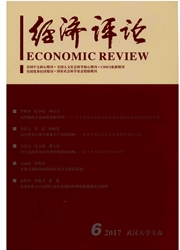

 中文摘要:
中文摘要:
金融抑制是发展中国家所面临的重要约束,其可能给家户福利和生产活动带来损失。金融约束不仅来自于正规金融,也来自于非正规金融。利用区域转换模型,本文从两个方面论证了正规金融与非正规金融对家户福利的不同作用。实证分析表明,正规金融约束的家户采用新的农业生产技术受到限制,非农经营的效应也更低,而社会资本在一定程度上对正规金融形成了替代,弥补了其部分功能。受到非正规金融约束的家户,社会资本的功能被弱化,但采用新的农业生产技术的作用以及参与农业生产合作组织的作用由于得到正规金融的支持而更强。正规金融与非正规金融大致存在一种替代关系,农村正规金融在满足生产发展尤其是非农业生产发展的需要方面发挥着重要作用,而基于社会资本的非正规金融主要对于缓冲收入冲击起着更重要的作用。
 英文摘要:
英文摘要:
Financial repression is an important constraint faced by developing countries, which results in loss in household welfare and production process. Financial repression not only results from formal finance, hut also from informal finance. Making use of regime switching model, this paper analyzes the different effects of the formal and informal finance to household welfare. The empirical results show that, the households facing formal financial repression are constrained in adapting new technologies, results in lower non - agriculture productivity, but make better uses of social capital, which compensates part of the corresponding functions and substitutes the formal finance to some extent. The households who face informal financial repression make less use of social capital, but the effects in making use of new technologies and production cooperate are stronger with the support of formal finance. The formal and informal finance are substitutes in general. The formal fiance plays an important role in supporting production especially non - agriculture operations, while the informal finance based on social capital plays an important role in coping with income shocks.
 同期刊论文项目
同期刊论文项目
 同项目期刊论文
同项目期刊论文
 期刊信息
期刊信息
